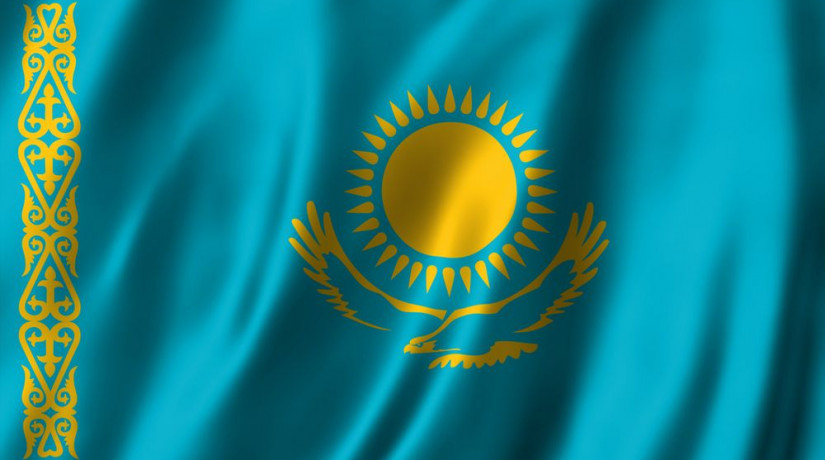Kazakhstan’s government determined to enhance engagement with civil society
 21 Апреля 2021
21 Апреля 2021
 971
971
 Социум
Социум
 Фото:EU Reporter
Фото:EU Reporter
Almaty. April 21. Information Center - This year Kazakhstan is marking its 30th anniversary as an independent state. We have come a long way over the last three decades. Our economy has greatly expanded and our political processes are unrecognisable compared to when we just gained our independence from the Soviet Union, writes Usen Suleimen, EU Reporter reports.
A critical element of Kazakhstan’s development has been the growth of our civil society, especially the increase in the number of non-governmental organizations (NGOs). It is hard to believe that in the early 1990s there were only approximately 400 NGOs in Kazakhstan. The story is much different today. By now, the number of active registered NGOs in Kazakhstan has increased 40-fold to around 16,000. Many operate in the sphere of support for socially vulnerable segments of the population or issues related to the protection of the rights and legal interests of citizens and organisations.
This dynamic is of course most welcome. A developed civil society is the foundation of any modern and thriving state. It provides an effective dialogue platform, as well as a communication bridge between representatives of the government and the public.
Therefore, the government of Kazakhstan has continued to support actively NGOs, including financially. In 2020, grants were provided worth 1.8 billion tenge (over 4.3 million US dollars). Most of the funding went towards supporting the projects related to the welfare and development of children and young people. Approximately 305.4 million tenge ($740,000) was allocated to promote directly the development of civil society, including increasing the efficiency of the activities of non-governmental organisations.
While substantial progress has been made, we are of course aware of the need to continue to develop the space for NGOs to thrive.
For this reason, the government takes active interest in this endeavour. Since2003, aCivil Forum, which serves as a platform for ensuring a dialogue between the state and NGOs, is regularly organised in our capital. The ninth Civil Forum held last November offered 12 virtual meetings between heads of ministries and representatives of NGOs. The participants discussed the main directions of the new concept for the development of civil society, citizen participation in decision-making, and mechanisms and opportunities for public scrutiny of government work, as well as other topics.
Another important tool for effective engagement between government and civil society is the Consultative and Advisory Body 'Dialogue Platform for the Human Dimension', which was set up at the initiative of the Ministry of Foreign Affairs of Kazakhstan in 2013 to further consolidate opportunities for the NGOs to engage in direct dialogue with representatives of the Government and Parliament on the issues of human rights and democratic reforms.
Meetings are held once a quarter under my chairmanship, with the participation of representatives of NGOs, members of parliament, representatives of the Human Rights Commission under the President of Kazakhstan, the Supreme Court, the Constitutional Council and relevant ministries, as well as representatives of our international partners, including the UN Development Programme, Office of the High Commissioner for Human Rights, OSCE, the European Union, foreign diplomatic missions, USAID, Penal Reform International, etc.
The relevance of this platform increased considerably with the announcement by Kazakhstan’s President Kassym-Jomart Tokayev of the concept of a “listening state”, implying stronger focus on the government’s engagement with the civil society, and implementation since 2019 of three packages of reforms in the field of human rights and further democratisation of political processes in the country.
Through open and transparent discussion, the activities of the platform have been vital to identifying systemic problems, as well as working together with Kazakh and international NGOs to find joint solutions. Our meetings provide a useful arrangement to discuss recommendations of the UN convention committees on Kazakhstan's implementation of international obligations to protect human rights.
Let me also give you two examples of issues, which had been closely reviewed by the Dialogue Platform and resulted in adoption of new legislative acts. One is the updated law on peaceful assemblies in Kazakhstan. The key change is that since last year NGOs or other groups that want to hold such a meeting need only to notify the local authorities about it five days before the actual event instead of applying for a permit. Another example is that last year the Article 130 of the country’s Criminal Code, namely on libel, was, at last, decriminalised. Both these topics had been regularly and vigorously discussed at the Dialogue Platform’s meetings.
The necessity for such a platform became especially clear earlier this year, when members of the Kazakh civil society raised the issue of the suspension of a few NGOs following inspections by the tax authorities. It was recommended at the meeting held on 26th January 2021 that the suspended organisations should apply to the higher tax authorities and appeal the decision. Deputy Prime Minister and Foreign Minister of Kazakhstan, Mukhtar Tileuberdi, assured that he would take this issue under his control.
Following a thorough review with the tax authorities, only a week later, on 3 February, all charges against the affected NGOs were dropped and the decision to suspend their activities was annulled. This situation has demonstrated why it is so important for the government and the civil society to have clear lines of communication. Without the Dialogue Platform for the Human Dimension and the open conversations between civil society and Kazakh government, the issue of the suspension of NGOs may not have been resolved so efficiently. Undoubtedly, lessons need to be learned following this case, but I believe I can say with some confidence that the engagement between civil society and our government is currently tangible and practical.
Of course, we will not stop here.
Last year, the President approved the Concept for the Development of Civil Society in Kazakhstan until 2025 last year. Its aim is to strengthen the system of partnership between the state, business, and civil society, as well as to facilitate further political transformation and modernisation in Kazakhstan. I believe we have a solid foundation to move steadily in this direction.
ru Займы под 120% годовых: дело о незаконном кредитовании передано в
ru Выставка тепличных технологий Grow Expo Astana 2026 пройдет 8-10 апреля
ru Жаркентская мечеть включена в предварительный список Всемирного наследия ЮНЕСКО
ru В Минтруда обсудили новые механизмы трудоустройства лиц с инвалидностью
ru Схема обмана студентов через соцсети раскрыта в Шымкенте
ru В Акорде состоялась церемония встречи Президента Сербии
ru Мобильный ЦОН: сколько услуг казахстанцы получают через приложение
ru Подростки с особыми потребностями осваивают профессию кондитера в Карагандинской области
ru КНБ ликвидировал канал контрабанды наркотиков
ru Охлажденное мясо птицы можно будет хранить в 3 раза дольше
ru Солдат Национальной гвардии разработал цифровой портал для военнослужащих
ru Учащиеся 0-9 классов второй смены переведены на дистанционный формат обучения
ru Пенсионерка едва не лишилась более 2 млн тенге в Павлодаре
ru Строительство нового завода Coca-Cola Içecek в Актобе планируется начать в
ru Один из крупнейших бизнесменов Польши построит фармзавод в Шымкенте
ru Стартует прием заявок на премию Президента Республики Казахстан «Алтын Сапа»
ru Президент Сербии Александр Вучич посетит Астану 26-27 февраля
ru Глава государства направил поздравительную телеграмму Эмиру Кувейта
ru МТСЗН РК опровергло фейк о ежегодном отпуске
ru В Алматы открылась юбилейная выставка о мастерах кино
ru В Астане вынесен приговор интернет-мошеннице
ru Олжас Бектенов о выделении 1 трлн тенге на посевную кампанию
ru Олжас Бектенов поручил упростить и оцифровать процедуру льготного кредитного финансирования
ru В Казахстане продолжается подготовка к паводковому периоду
ru В Алматы продолжают расширять фонд студенческих общежитий
ru Почти 3000 га сельхозземель возвращены в госсобственность в Туркестанской области
ru Марихуана в особо крупном размере изъята в ВКО
ru Олжас Бектенов провел заседание Совета директоров «Самрук-Қазына»
ru Из Турции экстрадирован подозреваемый в серийном мошенничестве
ru Спасатели МЧС оказали помощь 13 гражданам, оказавшимся в снежном заносе

 +77772555856
+77772555856
 Написать нам
Написать нам












